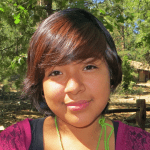CAMP FAQ
Learn more about camp!
Frequently Asked Questions
- What activities are offered? Do the campers have any choice in which activities they will do at camp? Are there alternative programs for campers that get overstimulated? How much instruction is given to campers who have no experience with, for example, horseback riding and rock climbing?
-
- Our programs vary from camp to camp and are dependent on the campsite. Typical camp activities offered are archery, arts & crafts, sports, high and low ropes, and pool/lake time.
- Campers’ Choice: Campers are free to pick activities they would like to go to, helping to increase independence and allowing time for each camper to improve and learn more of a skill. Due to COVID, this program is on hold until we no longer have to have “camper pods” at camp.
- There are options for campers that are overstimulated by high energy to go to another program that has less energy.
- We have wonderful certified facilitators that explain all the safety aspects of high-risk programs such as horseback riding and rock climbing. The facilitators will also explain how to do the activity, give options for those easing into the activity, give tips to help make the experience easier, and communicate with the campers the entire time to ensure everyone feels safe and comfortable.
-
- What’s the restroom situation? Both in terms of gender and how many restrooms there are/how far out of their way they might have to go to get to the nearest one?
-
- All restrooms at camp are gender-neutral. The number of restrooms depends on the campsite. There is usually one bathroom per cabin and they are located within a 1-2 minute walk of the cabin. Sometimes they are located inside the cabin. Due to COVID, we are assigning each cabin to specific restrooms on-site.
-
- What’s the shower situation?
-
- Showers are located in the restrooms and in individual stalls. We do require that the same gender identity campers shower at the same time and others will wait until they have been dressed in order to begin their showers.
-
- What time are campers required to go to bed and get up?
-
- Lights out for campers is at 9 pm and waking up can depend on how long the camper needs to get ready. Morning Circle is at 8:15 am which is when the entire cabin needs to meet in the middle of the camp and be ready for announcements.
-
- Are campers allowed to use cell phones while they’re at camp?
-
- Camp is a time we encourage campers to focus on friends and activities at camp. A time to disconnect from technology.
-
- What is the C.I.T. program? How does it work? Are all campers above a certain age required to take part in it? What’s the ratio of working hours to leisure hours for teens in the C.I.T. program? What accommodations are made for disabled teens in the CIT program?
-
- Our Counselor-in-Training (C.I.T) Program is a long-standing tradition at The Laurel Foundation for campers ages 15-17 to take a deeper dive into life skills, leadership, advocacy, and self-discovery!
- When a camper turns 15 years old, they are able to apply and interview for our C.I.T. Program. Once accepted, they will be congregated into one cabin group where they will be set apart from the rest of the campers as leaders within the camp. They will attend classes where they learn valuable skills and reflect on the world around them and themselves in order to achieve new levels of leadership and help prepare them for adulthood.
- Campers that are aged 15-17 do not have to participate in this program. Campers in this program go through a special interview and application process.
- Usually, the camp has four program periods a day. C.I.T.s will spend two of those periods in classes and the other two integrated into cabins as leaders to help mentor younger campers. There are times when they get to participate in programs as campers.
- We are able to make accommodations for disabled campers. Please contact us ahead of time so we can make these plans well in advance.
-
- What is done to try to protect campers from abuse at camp?
-
- We have many rules and policies in place to keep camp a safe, affirming, and loving space for all. One policy is the rule of three campers cannot go anywhere alone and must be with at least one staff member and one camper (or another staff member) at all times. This ensures campers the safety of all campers.
-
- How much freedom are campers given to dress in a gender-affirming way?
-
- We encourage all staff and campers to dress in a way that is safe and affirming to them. There is a big safety concern with clothing because we are exposed to the sun, have rocky terrain, and participate in high-risk activities such as mountain biking or rock climbing. With that said, we do require campers and staff to dress accordingly and to make sure they are being safe and respectful of others.
-
- If an AFAB camper starts menstruating for the first time at camp, do the counselors know how to handle that sensitively?
- We do go over this in our staff training which is mandatory for counselors.
10. What is the counselor demographic like at camp?
-
- Counselors are recruited to reflect the population served.
11. How flexible are daily schedules?
-
- Our schedules are created based on the availability of facilitators. Like a school schedule, we do have a set schedule to ensure everyone is able to get the most out of camp and that we are moving as a community.
12. How are cabins organized (gender of campers, gender of counselors, nonbinary, etc.)?
-
- This is dependent on the number of volunteers we have and campers that sign up. At least one counselor will identify as the same gender identity as the majority of the campers. We do try to group campers in the same age range, and then by gender identity. Our ratio of counselors to campers is 1:3
13. How educated are the counselors on racism, ableism, and other equity issues?
-
- We do cover this in our staff training and it is led by mental health professionals.
14. How much are the counselors educated about gender identity?
-
- Gender identity is covered in our staff training and we do screen volunteers to ensure they have experience or exposure to the community before coming to camp. It is expected that everyone respects everyone’s pronouns and name.
15. How many camper spots are there?
-
- Due to COVID, we do limit the number of campers to a maximum of 50.
16. Is there a waiting list to get in? How are campers selected from the waiting list?
-
- Yes, once we reach 50 confirmed campers, we start to add campers to the waitlist in the order they reach out. Pulling from the waitlist depends on how many people cancel prior to camp due to illness, family vacation plans, school activities, and other reasons.
17. How do you handle homesickness and campers wanting to go home?
-
- We know that coming to a new place with new people can be challenging and we have worked with our staff to ensure they are able to help make the transition as easy as possible. When a camper expresses homesickness or they want to go home, are mental health team, work with the camper and talk to the parent to best resolve the situation.
In Their Own Words

"There are a lot of camps out there, but there is no camp like Camp Laurel."

"Camp Laurel is the best place to be when home isn't."

"I keep coming back because this is where my family is."

"At first I was scared, but then I learned that no one was going to judge me here and I loved it."




